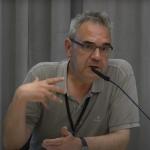The oceans, the atmosphere, and the biodiversity of the Earth are natural resources that we cannot live without as humans. But who do these resources belong to? If no one owns them, or everyone, how do we prevent a tragedy of the commons, whereby the pursuit of private gain end ups destroying our shared resources? The ‘common heritage of humankind’, an ethical as well as legal concept, offers a path towards answering those questions.
November 1st marks the 50th anniversary of one of the most consequential speeches in the history of the United Nations. In 1967, Maltese ambassador Arvid Pardo made a passionate, three-hour plea to the General Assembly, urging governments to consider the resources of the ocean floor beyond national jurisdiction as ‘the common heritage of mankind’. His speech prompted the 1982 UN Convention on the Law of the Sea, which embedded the concept of the common heritage of mankind into international law and laid the foundations of the International Seabed Authority.
Half a century after Pardo’s speech, the common heritage of mankind is still a controversial concept. Governments are currently debating whether or not it should have a place in a new UN agreement on conservation and sustainable use of biodiversity in international waters. Therefore, we decided to have a conversation with legal theorist Prue Taylor, senior lecturer at the University of Auckland, New Zealand.
Taylor wants to keep the legacy of Pardo and his kindred spirit Elisabeth Mann Borgese alive. She promotes an ecological perspective on the common heritage of humankind and asserts that our experience in managing local commons can teach us a great deal when it comes to protecting the global commons, such as our oceans.
Read the interview with Prue Taylor on the website of the Green European Journal

